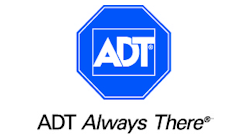Last Week, security giant Tyco officially separated into three independently traded public companies. These new companies include flow controls business Pentair Ltd., ADT, and the new Tyco, which is comprised of Tyco Security Products (American Dynamics, Bentel Security, CEM, Software House, DSC, Kantech, Visonic, Elpas, Sur-Gard and C24), Tyco Integrated Security (formerly known as ADT Business Solutions), SimplexGrinnell, Ansul, Scott Safety, and Chemguard.
On Monday, executives from ADT and Tyco rang the opening and closing bells at the New York Stock Exchange respectively, symbolically ushering in a new era at these multi-billion dollar security companies.
“When you look at the value that was unleashed here, the business models are different, trade differently within the market and now have been setup with their own capital structure with the currency that enables them to be able to grow in their markets,” said new Tyco CEO George Oliver.
Oliver, who most recently served as head of the company’s fire protection business, succeeds Ed Breen, who has retired, but will remain with the company as a member of the board.
Moving forward, Oliver said that Tyco will be a "pure play" security and fire company with nearly $10.5 billion in revenue.
"As we think about how we take this company and grow, we’ll make sure with a focus right from the top, there’s focus and discipline in executing that strategy and then have a capital structure that enables us to accelerate growth," he added. "Opposed to a holding company that has multiple businesses, now we’re an operating company that has similar fundamentals that enables us to leverage that and ultimately accelerate growth and create additional shareholder value."
Prior to the combining these business units under a single Tyco banner, Oliver said that the company was already a leader in security and fire protection, but integrating them presents a "unique opportunity" to bring differentiated solutions to the market. "The strategic rationale for this combination was that we’re in the same end markets, supporting the same end markets and many times the same customers," he said.
While ADT Commercial has been integrated into Tyco and rebranded as Tyco Integrated Security in the North American market, Oliver said that the company will retain the ADT brand for its overseas operations. Oliver said that the majority of Tyco’s revenues, about 45 percent are derived from services such as maintenance agreements and monitoring contracts, followed by systems installation at 35 percent. The manufacturing of security products accounts for about 20 percent of Tyco’s revenues, according to Oliver.
Oliver said that the company’s strategy following the combination of these business segments will be finding better ways to leverage their capabilities to "serve customers," "accelerate growth," as well as "synergizing" their existing infrastructure around the globe to support that growth.
"(Our strategy) is really around accelerating organic growth, which is going to be driven by our technology leadership and innovation in what we do in our product, as well as service businesses," Oliver added. "It’s going to be continuing to look at ways to capitalize on the key vertical markets and growth markets around the globe. Secondly, is enhancing that organic growth through strategic acquisitions. As the industry leader, we’re constantly looking at opportunities that will strengthen either our technology capabilities and/or footprint. Lastly, it’s just continuing very strong operational performance with a combination of these businesses that allow us to support the organic growth and continue to drive improved margins."
The separation transaction will also present a number of growth opportunities for ADT, according to Don Boerema, the company’s new chief corporate development officer.
"It allows us to be a lot more focused, a lot more nimble," he said. "I think we can be specialized in respect to different markets and I think it creates a lot of value for our shareholders."
From the perspective of ADT, which is the largest provider of alarm monitoring and installation services for the residential and light commercial market in North America, Boerema said that being independent will enable the firm to grow its service offerings and expand into multiple areas including home and business automation, energy management and lifestyle offerings such as home healthcare solutions and entertainment. "In fact, we probably have more opportunities than we can actually capitalize on, so we need to prioritize those," he added.
Boerema said the only real challenge with the separation for ADT are the physical ones of actually moving offices and people. The company will be headquartered in Boca Raton, Fla. and operate as a U.S.-based company
The separation has also meant senior leadership changes for ADT. Former ADT President John Koch, who left the company to pursue another opportunity, according to Boerema, has been supplanted by Naren Gursahaney, who formerly served as president of Tyco Security Solutions. In addition, Kathryn Mikells has been named as the company’s new chief financial officer and Tony Wells has been tapped to serve as chief marketing and customer officer. ADT also has a new board of directors as a result of the separation.
"I look at (becoming independent) as more of an opportunity where we can grow faster and it’s really not a challenge; it’s more about removing some of the barriers that we had before," Boerema explained. "From a company standpoint, Tyco has to deploy capital across these different businesses around the world. For us now, we can focus specifically on the North American market."
According to Boerema, there are three ways for ADT to grow which include increasing the overall market penetration of security and automation systems, expanding the share of the market that currently uses the company’s services and getting customers to buy additional services.
"The industry is evolving a lot, so it’s a pretty exciting time for the industry and it’s something that we’re very excited about," he said.




